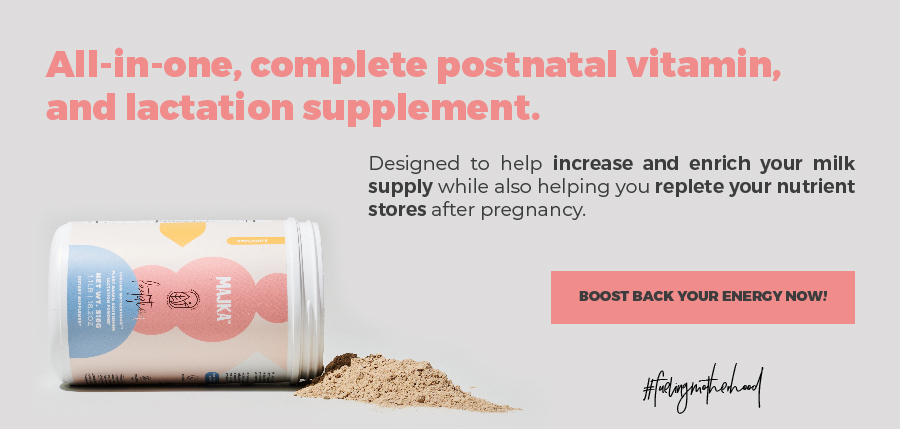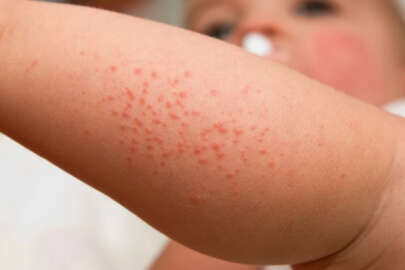
When you have a baby, your desire is to help him/her be the healthiest it can be. Your body is designed to give your baby what it needs. In a situation where this might not be the case, we can turn to science to help supplement!
In this article, we will tell you what an enteromammary pathway is and how it can help your baby to grow in a healthy way.
What is an Enteromammary Pathway?
An enteromammary pathway helps your good intestinal bacteria pass through your mammary gland to your baby’s intestine.
The microbiome starts to develop when you are pregnant and ends when you are done with breastfeeding.
Breast milk is optimal for your baby’s health, but even more beneficial if the baby gets it from breastfeeding. This increases the transfer of beneficial organisms as approximately 10% of the bacteria that your baby gets is from the skin around your areola.
What bacteria is in breast milk?
Breast milk is considered the optimum feeding regime because it provides complete nutrition for your baby. It has also been associated with improved infant immune development, less incidences of gastrointestinal disease, and lower mortality rates than formula fed infants.
Your breast milk has its own unique microbiome. It is a source of commensal bacteria, which further enhance infant health by preventing pathogen adhesion and promoting gut colonization of beneficial microbes. Breast milk is also an important source of lactic acid bacteria which shapes the intestinal microflora of breast-fed babies.
There are more than 200 strains of bacteria in breast milk, of which the most important are:
- Lactobacilli, has the ability to break down lactose and other simple sugars into lactic acid.
- Bacteroides, helps provide nutrition and vitamins to the host and other intestinal microbial residents.
- Bifidobacterium, helps stabilize your baby’s microbiome and eliminates potential pathogens.
*The microbiological profile of breast milk varies among individuals, both in quality and quantity.
How does it benefit my baby?
Breastfeeding your baby plays a very important role in his/her gut health development!.
Studies have found that a healthy microbiome develops in the first 3 years of your baby’s life. Beneficial gut bacteria will also lower the risk for chronic disease,neurodevelopmental disorder,regulate anxiety, mood, cognition, and pain.
Your breastmilk will seed and nurture your child’s microbiome with beneficial bacteria until it is fully mature.
How does it affect my baby?
The World Health Organization (WHO) and the American Academy of Pediatrics (AAP) recommend that babies are exclusively breastfed until six months of age. It is important to know that sometimes your breast milk could be a source of infection for your baby.
Studies have found that 3 viruses (CMV, HIV, and HTLV-I) can be transmitted through breast milk.
What can I do about it?
In some cases, the avoidance of breast milk is appropriate for a limited time. These include the following:(24 hours for N gonorrhoeae, H influenzae, Group B streptococci,staphylococci, B burgdorferi, T pallidum, and M tuberculosis).
If you have any doubts, talk to your healthcare provider.
At Breastfeeding 101, we invite you to follow all of our content as we dive deeper into the topic of your baby’s gut health .
If you want to learn more about enteromammary pathway, check out some of the sources that made this article possible:
Analysis of the human breast milk microbiome and bacterial extracellular vesicles in healthy mothers I Experimental and Molecular Medicine
An Insight into Probiotics Bio-Route: Translocation from the Mother’s Gut to the Mammary Gland I MDPI
Breast Milk: A Meal Worth Having I Frontiers
Breast Milk, a Source of Beneficial Microbes and Associated Benefits for Infant Health I MDPI
Breast milk and infection I National Library of Medicine
Breastfeeding and the Microbiome I The Moore Institute
Breastmilk Feeding Practices Are Associated with the Co-Occurrence of Bacteria in Mothers’ Milk and the Infant Gut: the CHILD Cohort Study I ScienceDirect
Breast Milk Is Teeming With Bacteria — That’s Good for the Baby I The New York Times
Contributions to human breast milk microbiome and enteromammary transfer of Bifidobacterium breve I PLOS ONE
Cronobacter and Powdered Infant Formula Investigation I Center of Disease Control and Prevention
Effect of breast milk with or without bacteria on infant gut microbiota I BMC Pregnancy and Childbirth
Lactobacillus Bacteria in Breast Milk I National Library of Medicine
Methicillin-resistant Staphylococcus aureus (MRSA) I Center of Disease Control and Prevention
Origins of human milk microbiota: new evidence and arising questions I Taylor and Francis online
Probiotics in human milk and probiotic supplementation in infant nutrition: a workshop report I Cambridge University Press
“Good bacteria” in breast milk changes over time I McGill
The Origin of Human Milk Bacteria: Is There a Bacterial Entero-Mammary Pathway during Late Pregnancy and Lactation? I Oxford Academic
The Prebiotic and Probiotic Properties of Human Milk: Implications for Infant Immune Development and Pediatric Asthma I National Library of Medicine
The risk of infectious pathogens in breast-feeding, donated human milk and breast milk substitutes I Cambridge University Press
Avery Reckers






